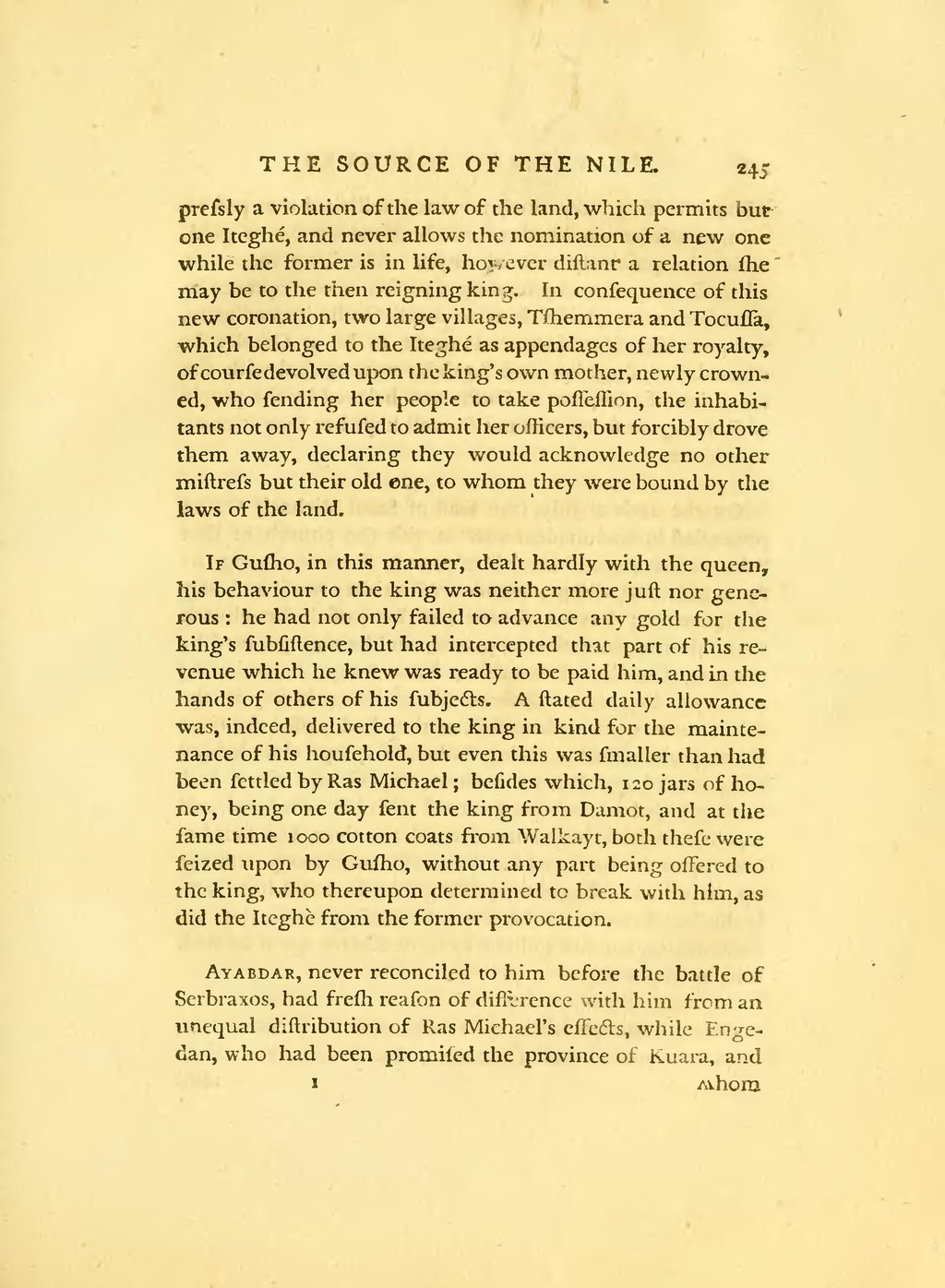pressly a violation of the law of the land, which permits but one Iteghé, and never allows the nomination of a new one while the former is in life, however distant a relation she may be to the then reigning king. In consequence of this new coronation, two large villages, Tshemmera and Tocussa, which belonged to the Iteghé as appendages of her royalty, of course devolved upon the king's own mother, newly crowned, who sending her people to take possession, the inhabitants not only refused to admit her officers, but forcibly drove them away, declaring they would acknowledge no other mistress but their old one, to whom they were bound by the laws of the land.
If Gusho, in this manner, dealt hardly with the queen, his behaviour to the king was neither more just nor generous: he had not only failed to advance any gold for the king's subsistence, but had intercepted that part of his revenue which he knew was ready to be paid him, and in the hands of others of his subjects. A stated daily allowance was, indeed, delivered to the king in kind for the maintenance of his household, but even this was smaller than had been settled by Ras Michael; besides which, 120 jars of honey, being one day sent the king from Damot, and at the same time 1000 cotton coats from Walkayt, both these were seized upon by Gusho, without any part being offered to the king, who thereupon determined to break with him, as did the Iteghé from the former provocation.
Ayabdar, never reconciled to him before the battle of Serbraxos, had fresh reason of difference with him from an unequal distribution of Ras Michael's effects, while Engedan, who had been promised the province of Kuara, and
